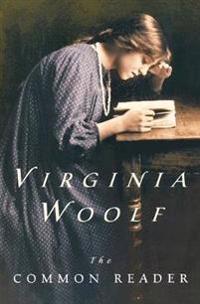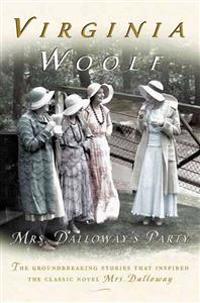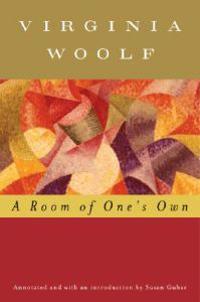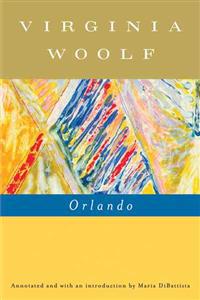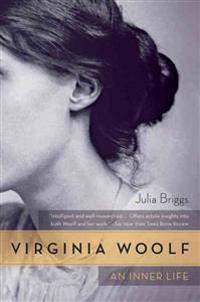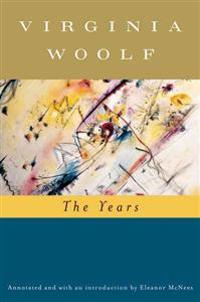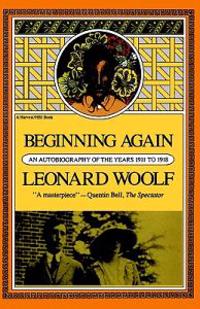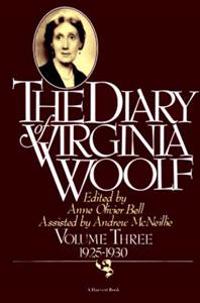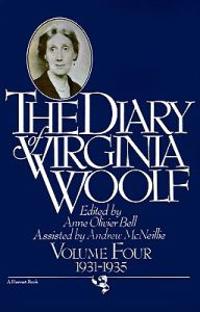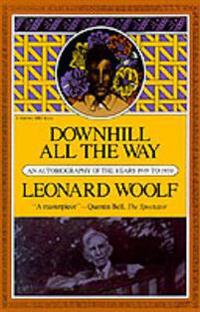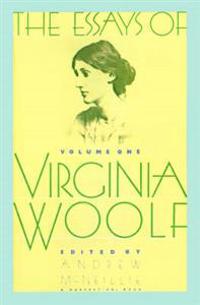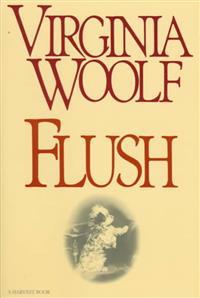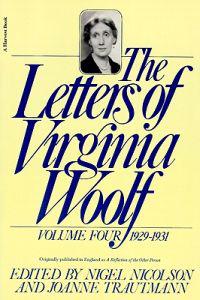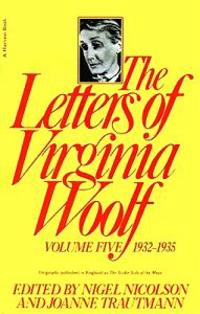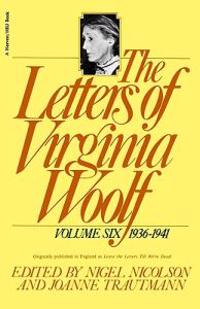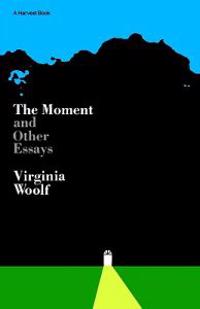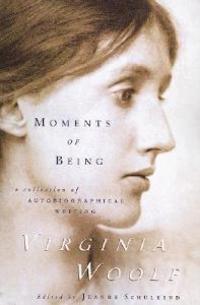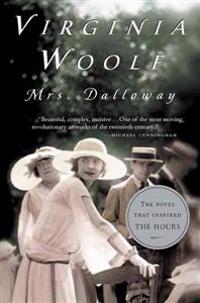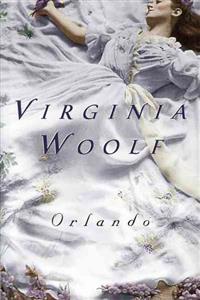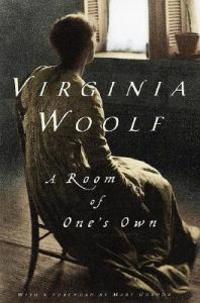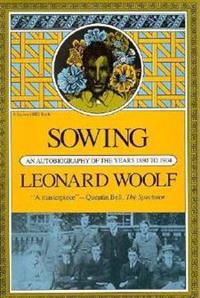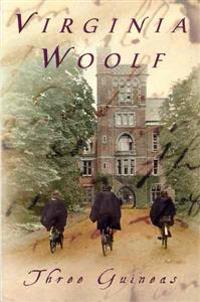Common Reader (Pocket)
avVirginia Woolf
ISBN: 9780156027786 - UTGIVEN: 2002-11Woolf's first and most popular volume of essays. This collection has more than twenty-five selections, including such important statements as "Modern Fiction" and "The Modern Essay." Edited and with an Introduction by Andrew McNeillie; Index.
[...]Mrs. Dalloway's Party: A Short Story Sequence (Häftad)
avVirginia Woolf, Stella McNichol
ISBN: 9780156029322 - UTGIVEN: 2004-01"Mrs. Dalloway said she would buy the gloves herself. Big Ben was striking as she stepped out into the street. It was eleven o'clock and the unused hour was fresh as if issued to children on a beach."
-from "Mrs. Dalloway in Bond Street"
The landmark modern novel Mrs. Dalloway creates a portr[...]Mrs. Dalloway (Pocket)
avVirginia Woolf, Bonnie Kime Scott
ISBN: 9780156030359 - UTGIVEN: 2005-08-01Presents a poignant portrayal of the thoughts and events that comprise one day in a woman's life as Clarissa Dalloway makes preparations for a party she is hosting later in the evening, in an annotated edition of the classic novel. Reprint[...]
A Room of One's Own (Häftad)
avVirginia Woolf, Mark Hussey, Susan Gubar
ISBN: 9780156030410 - UTGIVEN: 200508In A Room of One's Own, Virginia Woolf imagines that Shakespeare had a sister: a sister equal to Shakespeare in talent, equal in genius, but whose legacy is radically different.This imaginary woman never writes a word and dies by her own hand, her genius unexpressed. But if only she had found the me[...]
To the Lighthouse (Pocket)
avWoolf, Virginia
ISBN: 9780156030472To the Lighthouse is one of the greatest literary achievements of the twentieth century and the author's most popular novel. The serene and maternal Mrs. Ramsay, the tragic yet absurd Mr. Ramsay, and their children and assorted guests are on holiday on the Isle of Skye. From the seemingly trivial po[...]
Orlando: A Biography (Häftad)
avVirginia Woolf, Mark Hussey, Maria DiBattista
ISBN: 9780156031516 - UTGIVEN: 200607Begun as a "joke," Orlando is Virginia Woolf's fantastical biography of a poet who first appears as a sixteen-year-old boy at the court of Elizabeth I, and is left at the novel's end a married woman in the year 1928. Part love letter to Vita Sackville-West, part exploration of the art of biography, [...]
The Years (Häftad)
avVirginia Woolf, Mark Hussey, Eleanor McNees
ISBN: 9780156034852 - UTGIVEN: 200806Beginning Again Revised (Häftad)
avLeonard Woolf
ISBN: 9780156116800 - UTGIVEN: 1989-10The author's account of the events of World War I and also a description of the origin of the Bloomsbury Group, the founding of the Hogarth Press, and the author's marriage to Virginia Stephen. "To write this masterly account is a severe test of courage and honesty...it raises the book to greatness"[...]
Diary of Virginia Woolf: 1925-1930 (Häftad)
avAnne Olivier Bell, Anne Olivier Bell
ISBN: 9780156260381 - UTGIVEN: 198109An account of Woolf's life during the period in which To the Lighthouse and The Waves were written. "Her steel-trap mind and elegant prose...make this a most valuable and pleasurable book" (Publishers Weekly). "Volume three is as witty and intelligent as its predecessors" (Atlantic Monthly). Edited [...]
The Diary of Virginia Woolf: 1931-1935 (Häftad)
avAnne O. Bell, Andrew McNeillie
ISBN: 9780156260398 - UTGIVEN: 198311The penultimate volume of Woolf's diaries details the mature period of The Years and moments of personal sadness brought by the deaths of Lytton Strachey, Dora Carrington, and Roger Fry. "A book of extraordinary vitality, wit, and beauty" (New York Times Book Review). Edited by Anne Olivier Bell, as[...]
Downhill All the Way: An Autobiography of the Years 1919 to 1939 (Häftad)
avLeonard Woolf
ISBN: 9780156261456 - UTGIVEN: 1989-10Leonard Woolf's recollections of his life with Virginia Woolf during the years when she wrote her major novels; also an account of the growth of the Hogarth Press, as well as portraits of Sigmund Freud, T. S. Eliot, and others. "There is a lucid probity in Leonard Woolf's writing" (Leon Edel, Saturd[...]
Essays of Virginia Woolf: 1904-1912 (Häftad)
avAndrew McNeillie
ISBN: 9780156290548 - UTGIVEN: 198911Nonfiction pieces dating from 1904, when she was twenty-three, to 1912, the year of her marriage to Leonard Woolf. "These are polished works of literary journalism-shrewd, deft, inquisitive, graceful, and often sparkling" (Library Journal). Edited and with an Introduction by Andrew McNeillie; Index.[...]
Growing: An Autobiography of the Years 1904 to 1911 (Häftad)
avLeonard Woolf, Woolfl
ISBN: 9780156372152 - UTGIVEN: 1989-10The English writer and publisher records his experiences in the Civil Service in Ceylon and describes that country's culture and people[...]
The Letters of Virginia Woolf: Volume IV: 1929-1931 (häftad)
ISBN: 9780156508841 - UTGIVEN: 1981-05These years were dominated by one woman and one book. The woman was Ethel Smyth; the book was The Waves. This volume's "unerringly human and confessional tone makes Woolf, at last, a real person" (San Francisco Chronicle). Edited by Nigel Nicolson and Joanne Trautmann; Introduction by Nigel Nicolson[...]
Letters of Virginia Woolf 1932-1935 (häftad)
ISBN: 9780156508865 - UTGIVEN: 1982-05The penultimate volume of Woolf's letters, when the author was between the ages of 50 and 53, covers the composition of the Years and the death of Lytton Strachey and Roger Fry. "Her wit flashes, often unexpectedly, in letters of almost every kind" (New Yorker). Edited by Nigel Nicolson and Joanne T[...]
The Letters of Virginia Woolf: Vol. 6 (1936-1941) (häftad)
ISBN: 9780156508872 - UTGIVEN: 1982-09The unabridged texts of virtually all of the English novelist's extant correspondence, recording her personality, activities, relationships, spells of madness, and growth as a writer from the age of six to shortly before her death[...]
Moment and Other Essays (Häftad)
avVirginia Woolf
ISBN: 9780156619004 - UTGIVEN: 197410A selection of twenty-nine essays. " Woolf's] essays...are lighter and easier than her fiction, and they exude information and pleasure.... Everything she writes about novelists, like everything she writes about women, is fascinating.... Her well-stocked, academic, masculine mind is the ideal flint [...]
Moments of Being: Second Edition (Häftad)
avVirginia Woolf, Jeanne Schulkind
ISBN: 9780156619189 - UTGIVEN: 198508Published years after her death, "Moments of Being" is Virginia Woolf's only autobiographical writing, considered by many to be her most important book.
In "Reminiscences," the first of five pieces included in "Moments of Being," Woolf focuses on the death of her mother, "the greatest disaster th[...]Mrs. Dalloway (Häftad)
avVirginia Woolf, Maureen Howard
ISBN: 9780156628709 - UTGIVEN: 1990-09Direct and vivid in her account of Clarissa Dalloway's preparations for a party, Virginia Woolf explores the hidden springs of thought and action in one day of a woman's life. In Mrs. Dalloway, the novel on which the movie "The Hours" was based, Virginia Woolf details Clarissa Dalloway's preparation[...]
A Room of One's Own (Häftad)
avVirginia Woolf, Mary Gordon
ISBN: 9780156787338 - UTGIVEN: 198912Virginia Woolf's landmark inquiry into women's role in society In "A Room of One's Own," Virginia Woolf imagines that Shakespeare had a sister--a sister equal to Shakespeare in talent, and equal in genius, but whose legacy is radically different. This imaginary woman never writes a word and dies by [...]
Sowing: An Autobiography of the Years 1880 to 1904 (Häftad)
avLeonard Woolf
ISBN: 9780156839457 - UTGIVEN: 1989-10Three Guineas (Häftad)
avVirginia Woolf
ISBN: 9780156901772 - UTGIVEN: 196305The author received three separate requests for a gift of one guinea-one for a women s college building fund, one for a society promoting the employment of professional women, and one to help prevent war and protect culture, and intellectual liberty. This book is a threefold answer to these requests[...]

